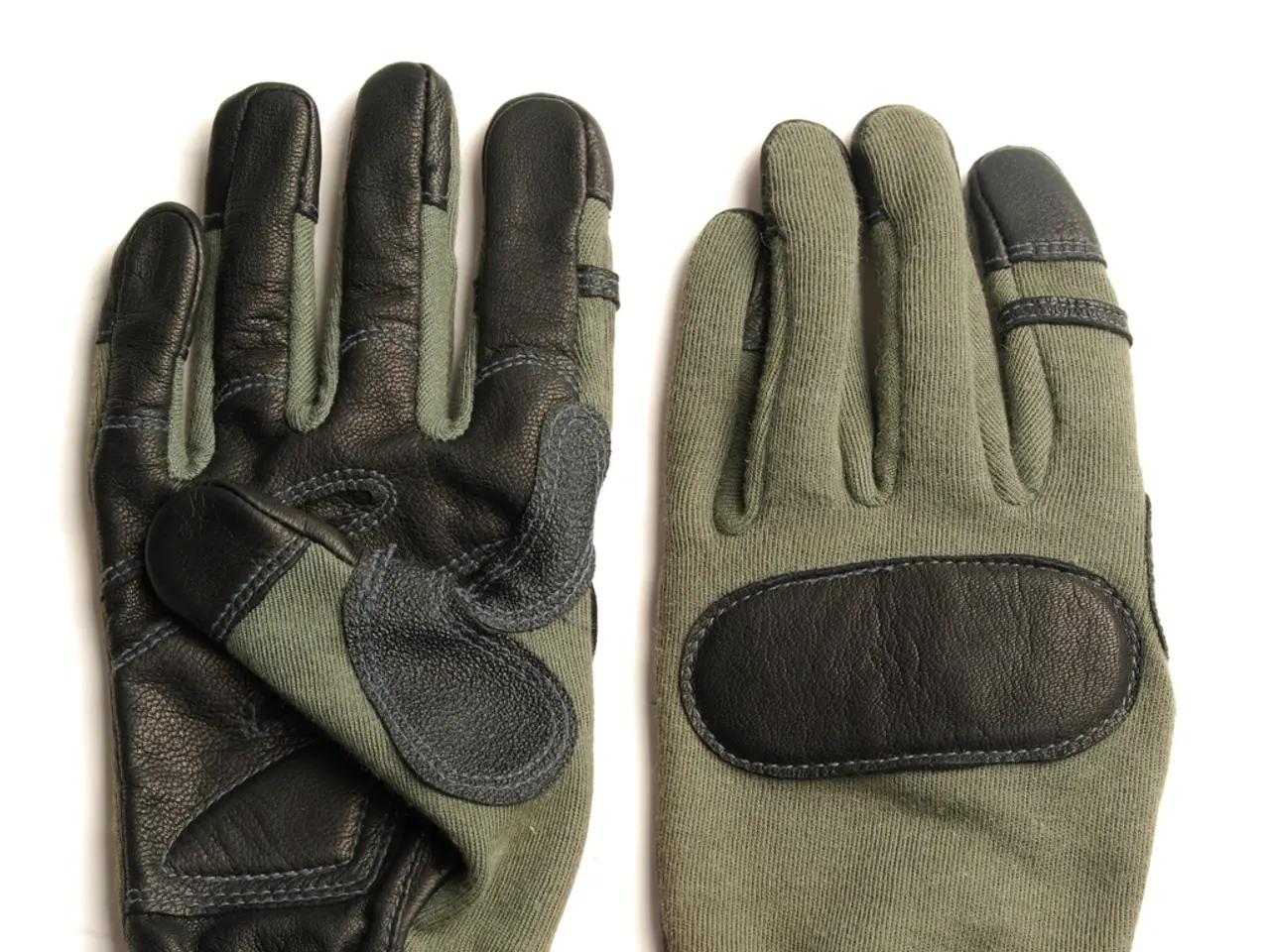Dry Skin Solutions: Identifying Causes and DIY Treatments
In the colder months, or even during the warmer seasons, dry hands can become a persistent issue for many people. This article provides a comprehensive guide to understanding the causes, prevention methods, and treatments for dry hands.
Protecting the skin from the sun with sunblock can prevent dryness and sunburns. Similarly, shielding hands from harsh environmental conditions, such as cold winter weather, can help maintain their moisture levels. Wearing gloves when in contact with water for prolonged periods can also be beneficial.
Avoiding soap, which can have a drying effect, can help prevent dry hands. Using a humidifier can help protect the skin from drying out in dry environments or during winter months. Opting for hot air dryers can lead to dry hands, so it's best to avoid them.
People who wash their hands frequently, such as doctors, nurses, dishwashers, and hair stylists, are more likely to have dry hands. Dishwashers and others who work in water-intensive environments may want to consider wearing gloves to protect themselves from excessive exposure.
Common medical conditions associated with dry hands include dyshidrotic eczema, atopic dermatitis (eczema), contact dermatitis, fungal infections, acral peeling skin syndrome, vitamin deficiencies, and environmental dryness and frequent washing.
Dyshidrotic eczema, a type of eczema mainly affecting the palms and soles, causes clusters of small, fluid-filled blisters and intense itching. Atopic dermatitis is a chronic condition characterized by dry, itchy, and inflamed skin. Contact dermatitis occurs when skin comes into contact with irritants or allergens. Fungal infections cause itchy, discolored patches with scaling and cracking. Acral peeling skin syndrome is a rare genetic disorder causing painless peeling of the outermost skin layer on hands and feet. Vitamin deficiencies in vitamins B3, B7, and A can impair skin health, leading to dryness and peeling of the skin on the hands.
Stress can trigger eczema outbreaks or flares, leading to dry skin. Using moisturizers, such as commercial creams or oils like coconut oil, can help restore moisture to dry hands. People who frequently wash their hands should apply moisturizer immediately following hand-washing. Exfoliation can help remove dead, dry, and damaged skin, which can be done with commercial products, a pumice stone, or a homemade solution of olive oil and granulated sugar.
Medical treatments for dry hands often focus on underlying medical conditions, such as eczema and psoriasis. Oats, when added to a bath, can help rejuvenate the skin. Anyone experiencing bleeding, discolorations, swelling, drainage from open wounds, extreme redness, or if the condition worsens or home remedies do not work, should seek medical attention.
Regular moisturizing and avoiding irritants are key preventive steps. Proper diagnosis may require evaluation by a healthcare professional to distinguish between these conditions and to guide effective treatment.
- Incorporating sunblock into your skincare routine can prevent dryness and sunburns, similar to shielding hands from cold winter weather to maintain their moisture levels.
- Medical conditions such as eczema (atopic dermatitis), contact dermatitis, fungal infections, and acral peeling skin syndrome can cause dry hands, as well as environmental dryness and frequent washing.
- Frequent hand-washing, common among doctors, nurses, dishwashers, and hair stylists, can lead to dry hands, so it's important for them to protect their hands by wearing gloves and regularly applying moisturizer.
- To restore moisture to dry hands, consider using commercial moisturizing creams, oils like coconut oil, or engaging in skincare routines such as exfoliation using commercial products, pumice stones, or homemade solutions like olive oil and granulated sugar.
- Science and health-and-wellness, fitness-and-exercise, and skin-care industries have established various preventive measures and treatments for dry hands.
- If you experience severe symptoms like bleeding, discolorations, swelling, drainage from open wounds, extreme redness, or if your condition worsens or home remedies do not work, seek medical attention.





